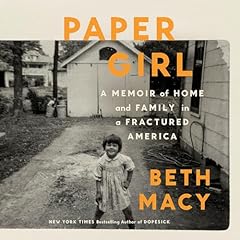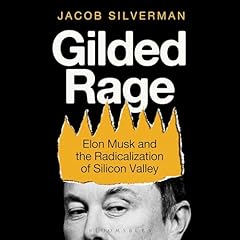
Factory Man
How One Furniture Maker Battled Offshoring, Stayed Local - and Helped Save an American Town
No se pudo agregar al carrito
Solo puedes tener X títulos en el carrito para realizar el pago.
Add to Cart failed.
Por favor prueba de nuevo más tarde
Error al Agregar a Lista de Deseos.
Por favor prueba de nuevo más tarde
Error al eliminar de la lista de deseos.
Por favor prueba de nuevo más tarde
Error al añadir a tu biblioteca
Por favor intenta de nuevo
Error al seguir el podcast
Intenta nuevamente
Error al dejar de seguir el podcast
Intenta nuevamente
 Exclusivo para miembros Prime: ¿Nuevo en Audible? Obtén 2 audiolibros gratis con tu prueba.
Exclusivo para miembros Prime: ¿Nuevo en Audible? Obtén 2 audiolibros gratis con tu prueba.
Elige 1 audiolibro al mes de nuestra inigualable colección.
Acceso ilimitado a nuestro catálogo de más de 150,000 audiolibros y podcasts.
Accede a ofertas y descuentos exclusivos.
Premium Plus se renueva automáticamente por $14.95 al mes después de 30 días. Cancela en cualquier momento.
Compra ahora por $28.79
-
Narrado por:
-
Kristin Kalbli
-
De:
-
Beth Macy
The Bassett Furniture Company was once the world's biggest wood furniture manufacturer. Run by the same powerful Virginia family for generations, it was also the center of life in Bassett, Virginia. But beginning in the 1980s, the first waves of Asian competition hit, and ultimately Bassett was forced to send its production overseas.
One man fought back: John Bassett III, a shrewd and determined third-generation factory man, now chairman of Vaughan-Bassett Furniture Co, which employs more than 700 Virginians and has sales of more than $90 million. In Factory Man, Beth Macy brings to life Bassett's deeply personal furniture and family story, along with a host of characters from an industry that was as cutthroat as it was colorful. As she shows how he uses legal maneuvers, factory efficiencies, and sheer grit and cunning to save hundreds of jobs, she also reveals the truth about modern industry in America.
Los oyentes también disfrutaron:




















Reseñas de la Crítica
"In a class with other runaway debuts like Laura Hillenbrand's "Seabiscuit" and Katherine Boo's "Behind the Beautiful Forevers": These nonfiction narratives are more stirring and dramatic than most novels. And Ms. Macy writes so vigorously that she hooks you instantly. You won't be putting this book down."—Janet Maslin, New York Times
"In a world of blue-collar victims, where logging chains seal forever the doors of mills and factories from the Rust Belt to the Deep South, Beth Macy's award-winning look at one furniture maker's refusal to give in is a breath of hope-and a damn fine story to read. The book tracks John Bassett's fight to keep American jobs on this side of borders and oceans, and keeps one American town from becoming a place of empty storefronts and FOR SALE signs."—Rick Bragg, Pulitzer Prize-winning author of The Most They Ever Had
"Beth Macy has done a masterful job in personalizing the biggest American economic story of our time--how to save American jobs in the 21st Century. John Bassett III is a cinematic figure and quintessential American, battling for his company, his town and his country."—Jonathan Alter, author of The Center Holds: Obama and His Enemies
"The author's brightly written, richly detailed narrative not only illuminates globalization and the issue of offshoring, but succeeds brilliantly in conveying the human costs borne by low-income people displaced from a way of life.... A masterly feat of reporting."—Kirkus (starred review)
"Macy's down-to-earth writing style and abundance of personal stories from manufacturing's beleaguered front lines make her work a stirring critique of globalization."—Carl Hays, Booklist
"Macy's riveting narrative is rich in local color.... Vivid reporting."—Publishers Weekly (starred review)
"The unlikely hero of Factory Man is a determined, ornery, and absolutely indomitable...business man. He's the head of a family furniture company and damned if he's going to be pushed around. Beth Macy has given us an inspiring and engaging tale for our times, but not the expected one."—Alex Jones, Pulitzer Prize-winning author of Losing the News: The Future of the News that Feeds Democracy, Director of the Shorenstein Center on Media, Politics and Public Policy and Laurence M. Lombard Lecturer in the Press and Public Policy
Las personas que vieron esto también vieron:













An Inspirational American Story
Se ha producido un error. Vuelve a intentarlo dentro de unos minutos.
What a story!
Se ha producido un error. Vuelve a intentarlo dentro de unos minutos.
Would you recommend this audiobook to a friend? If so, why?
I would recommend this audiobook to a friend. It is both interesting and educational. All Americans should understand how we lost our manufacturing sector and what can be done. Factory Man gives insight into this timely topic.Interesting History
Se ha producido un error. Vuelve a intentarlo dentro de unos minutos.
Inspirational
Se ha producido un error. Vuelve a intentarlo dentro de unos minutos.
I Am A supplier to the furniture ind. good read
Se ha producido un error. Vuelve a intentarlo dentro de unos minutos.


